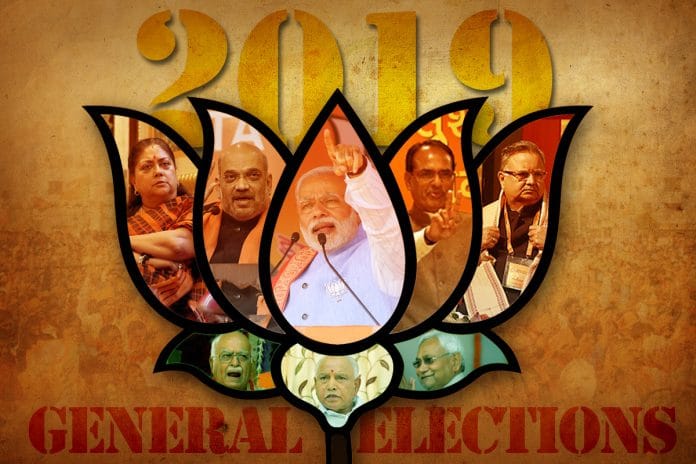The PM has all of 2018 to work on his governance delivery indicators, which he wants to package in 2019 as his ‘reform-perform-transform’ scorecard.
The Gujarat elections may have truly tested Prime Minister Narendra Modi, but the results have eventually positioned him in a relatively comfortable place, from where he now has just one poll to plan for – the 2019 general elections.
How? Let’s not forget that however Modi-centric the BJP may appear today, he was, until 2013, one among the few successful BJP chief ministers. Yes, he was the senior-most, but not necessarily preferred by everyone in the BJP’s Delhi leadership.
BJP veteran and former deputy prime minister L.K. Advani at one time even floated Madhya Pradesh CM Shivraj Singh Chouhan’s name, but Modi trounced these challenges with a degree of aplomb, and then sealed it with an emphatic win in 2014.
Since then, every assembly election has been a litmus test for Modi’s popularity; and consequently, every victory a reaffirmation of his authority. The truth is that neither Modi nor Amit Shah can take their exalted status for granted within the BJP or the larger sangh parivar.
Modi knows it’s the winning scorecard that keeps his detractors at bay. This is why Bihar was a setback. This is also why it became important to form governments in Manipur and Goa (to keep the scorecard 3-2), despite a hands down victory in Uttar Pradesh earlier this year.
In fact, the break-up of the grand alliance and the return of Nitish Kumar into the NDA fold was no less a political victory in this endeavour.
But this franticness can now come to a pause with Gujarat, at least for the PM. Modi could not risk distancing himself from the elections, even though he was PM. As a result, the victory has placed him in a league beyond the other BJP CMs.
Chouhan, Raman Singh and Vasundhara Raje have to first match up to this effort before even being considered as challengers. This brings a greater degree of both reassurance and comfort, besides increased authority for Modi.
Similarly, the upcoming elections in Karnataka are more important for Congress president Rahul Gandhi – in fact, absolutely critical – than for Modi. But just like the other BJP CMs, the polls there will be vital for the party’s local stalwart and challenger, B.S. Yeddyurappa.
Essentially, from here on, state electoral victories or defeats are of little consequence to Modi in the run-up to the 2019 general elections.
Let’s not forget the BJP won the state elections in MP, Rajasthan and Chhattisgarh in 2003, but lost the general elections in 2004.
And in quite the opposite way, the Congress lost in Karnataka, MP and Chhattisgarh in 2008, but went on to win the 2009 general elections. So, historically too, the outcomes in these state elections don’t necessarily impact the general elections.
The PM, therefore, has all of 2018 to work on his governance delivery indicators, which he wants to package in 2019 as his ‘reform-perform-transform’ scorecard.
On this front, the government would like to believe the worst is over, in terms of GST implementation and the shock from demonetisation, and that they will cease to be defining electoral issues.
The focus will shift to rural areas, farmer relief and swift implementation of the Pradhan Mantri Awas Yojana, a flagship programme the BJP will want to package along with the successful Ujjwala scheme. It will be a period of consolidation of past announcements and ensuring delivery on the ground.
At the same time, the Gujarat results will bring the focus back on caste-based reservations, an issue that the BJP embraced in UP, notwithstanding the hectoring to the Congress for playing the same card in Gujarat. The commission looking into reservation for OBCs will become relevant ahead of 2019.
It’s quite unlikely that the BJP will fully invest itself in any deeply divisive religious/communal issue that will detract from its big governance delivery package. But at the same time, these issues will be stoked every now and then to keep the pot boiling, and the cadre cohesive.
The big difference for Modi, however, will be to deal with a resurgent Congress trying to take on the BJP at every level — whether on the streets over the continuing agrarian distress, or on more progressive issues such as reservation for women in Parliament, or for that matter, a daily riposte on governance matters.
This will be a keen contest, one which Modi will come at from a position of advantage and relative comfort. Rahul Gandhi, meanwhile, will be on test from here on, election after election, until 2019.






